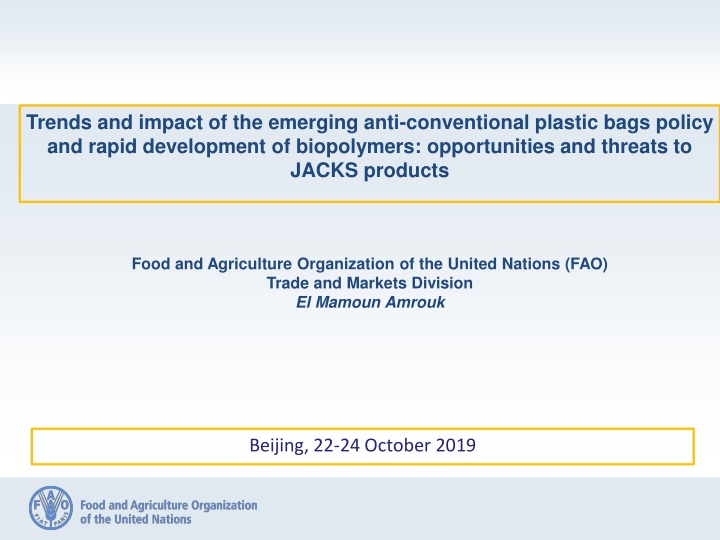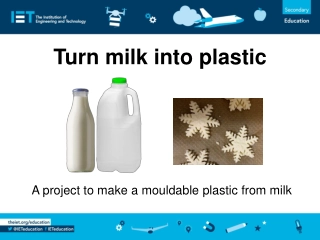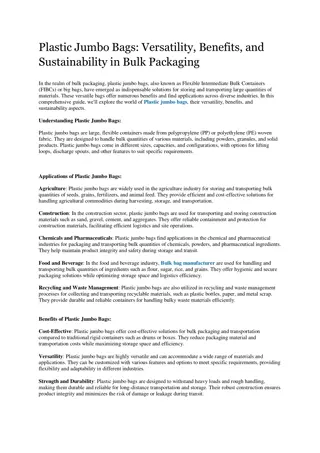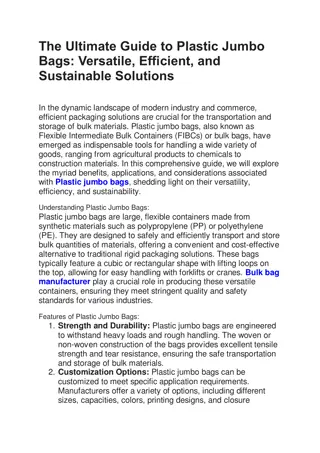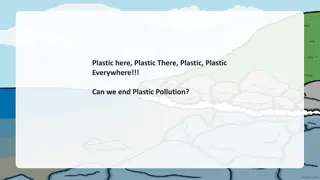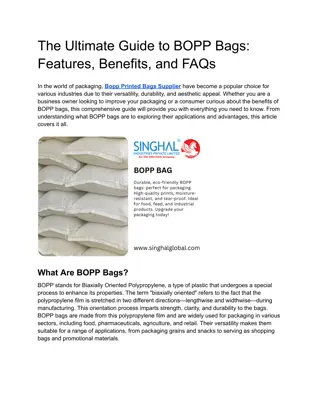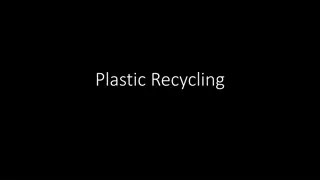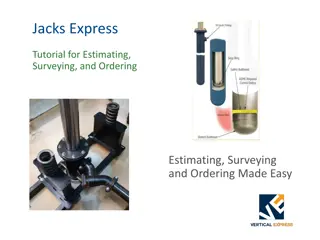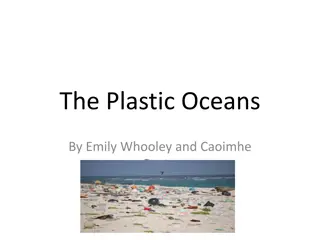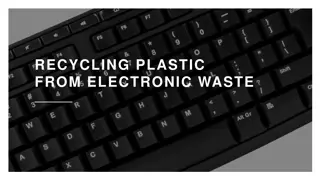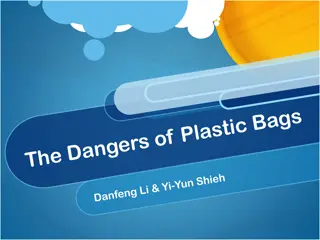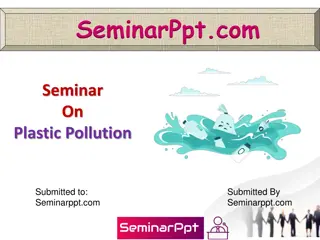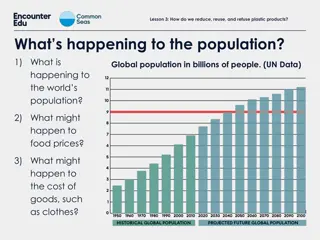Impact of Emerging Anti-Conventional Plastic Bags Policy on Biopolymers: Opportunities & Threats to JACKS Products
The paper discusses the trends and impacts of the emerging anti-conventional plastic bags policy alongside the rapid development of biopolymers, presenting opportunities and threats to JACKS products. It delves into the problematic use of plastics, the boom in the plastic sector, major issues associated with plastics, changing attitudes towards plastics, and alternative eco-friendly options like bioplastics and biodegradable plastics.
Download Presentation

Please find below an Image/Link to download the presentation.
The content on the website is provided AS IS for your information and personal use only. It may not be sold, licensed, or shared on other websites without obtaining consent from the author.If you encounter any issues during the download, it is possible that the publisher has removed the file from their server.
You are allowed to download the files provided on this website for personal or commercial use, subject to the condition that they are used lawfully. All files are the property of their respective owners.
The content on the website is provided AS IS for your information and personal use only. It may not be sold, licensed, or shared on other websites without obtaining consent from the author.
E N D
Presentation Transcript
Trends and impact of the emerging anti-conventional plastic bags policy and rapid development of biopolymers: opportunities and threats to JACKS products Food and Agriculture Organization of the United Nations (FAO) Trade and Markets Division El Mamoun Amrouk Beijing, 22-24 October 2019
Outline Background and purpose of the paper The problematic of increased use of plastics JACKS as alternatives to plastics: myth or reality? Follow-up actions by the JM
The boom of the plastic sector In 2016, the world generated 242 million tonnes of plastic waste equivalent to 12 percent of all municipal solid waste Packaging accounts for about half of the plastic waste in the world (UNEP, 2018) If the growth in plastic production continues at the current pace, by 2050 the plastic industry may account for 20 percent of the world s total crude oil consumption Plastic is a resistant material which can be utilized in a wide range of applications. Most plastics are not biodegradable, but instead photodegradable
Major Issues with plastics Their light weight leads to a tendency to balloon and be blown by wind at open waste disposal sites, traveling for miles and ending up in trees, bushes and waterways Pollution is a major factor throughout the life cycle of plastic bags The use of plastic shopping bags has been increasing, with the trend expected to continue, as urbanization, population and per capita income rise It is estimated that 12 million barrels of oil are used to produce 100 billion plastic bags
Changes in the attitudes towards plastics [] Plastic bags banned [] A tax on some plastic bags [] Voluntary tax agreement [] Partial tax or ban (regional levels)
Alternatives to plastics Bioplastics made from biological sources such as corn starch Eco plastics, plastics based on recycled plastic materials instead of raw petrochemicals. Biodegradable plastics derived from traditional petrochemicals, engineered to break down quickly
Some alternatives to plastic bags Canvas or calico Reusable paper JACKS bags Polypropylene green bag
Effect of changes in technology and innovation on the cost of JACKS-based bags How to move from the high end of the cost curve to the lower end Price insensitive market segment Price Marginal cost at low innovation level Avoiding the Jevons paradox Price matters Price sensitive market segment Marginal cost at high innovation level Role of public and private sector Output
Issues for consideration JACKS-based bioplastics and bags offer a credible alternative to conventional plastics, but there are challenges: Relatively high per-unit production cost Lack of supply reliability Issues of quality The need for generic product promotion Market access issues (e.g. tariff escalation) The need to comply with multiple and divers production standards
Suggested action by the Joint Meeting Express its views on the opportunities for, and threats to, JACKS-based bioplastic products; Express its views regarding the appropriateness of undertaking internationally coordinated generic promotion activities to improve the visibility of JACKS products; Welcome the views of industry representatives to obtain appropriate guidance regarding opportunities and constraints relative to internationally coordinated generic promotion for JACKS; Consider serving as a technical advisory for projects proposed by Members and impact investors in the area of market diversification and sustainability of JACKS; Provide guidance regarding the need for further work on this topic.
